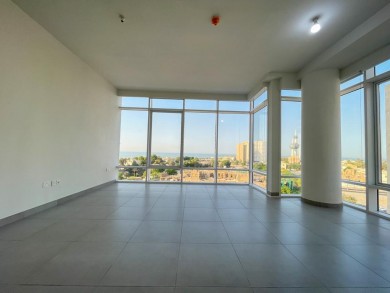Renting a property in Kuwait involves more than just finding the right place to live—it also requires understanding the legalities behind the tenancy contract. A tenancy contract is a legal agreement between the landlord and tenant, outlining the terms and conditions of the rental arrangement. This contract protects both parties by ensuring that everyone understands their rights and responsibilities.
In this blog, we’ll explore what a tenancy contract in Kuwait entails, the key components, and what tenants and landlords need to know when entering into such an agreement.
1. What is a Tenancy Contract?
A tenancy contract is a legal document that outlines the rights and obligations of both the landlord and tenant during the rental period. In Kuwait, tenancy contracts are governed by local laws and regulations, which provide clear guidelines for what can and cannot be included in a lease agreement.
The contract typically specifies details like the rental amount, payment terms, property conditions, duration of the lease, and responsibilities for maintenance and repairs. It serves as a legally binding document that can be used in case of disputes.
2. Key Elements of a Tenancy Contract in Kuwait
A well-drafted tenancy contract should cover all essential aspects to ensure that both the landlord and tenant have a clear understanding of their commitments. Below are the key components that should be included in a tenancy agreement in Kuwait:
a. Property Details
The contract should begin by clearly identifying the property being rented, including the address, type (apartment, villa, etc.), and the specific unit or floor if applicable. It is crucial to specify the boundaries of the property being rented to avoid any confusion later.
b. Lease Term
The duration of the lease agreement is another critical detail. Tenancy contracts in Kuwait are typically set for one year but can be shorter or longer depending on the agreement between the landlord and tenant. The contract should include the start and end dates of the lease.
Fixed-Term Lease: A fixed-term lease specifies the duration of the contract, which could be renewed after the term ends.
Renewal Clause: Many tenancy agreements include an automatic renewal clause unless one of the parties decides to terminate the contract. It’s essential to specify the process for renewing the lease, including how much notice must be given.
c. Rent Amount and Payment Terms
The rental amount should be clearly outlined in the contract, along with the frequency of payments (monthly, quarterly, or annually). This section should also specify the following:
Payment Method: Whether the rent will be paid via bank transfer, cheque, or cash.
Security Deposit: A security deposit is often required at the beginning of the lease, which acts as protection for the landlord in case of property damage or unpaid rent. The amount is usually equivalent to one or two months' rent. The contract should also state how and when this deposit will be refunded.
Late Payment Penalties: If the rent is paid late, the tenancy contract should specify any penalties or fines that will apply.
d. Maintenance and Repairs
The tenancy contract should outline the responsibilities of both the landlord and tenant regarding maintenance and repairs. Typically, the landlord is responsible for ensuring the property is in good condition, including major repairs (such as plumbing or electrical issues). On the other hand, tenants are expected to take care of minor maintenance tasks, such as keeping the property clean or changing light bulbs.
Landlord Responsibilities: The contract should specify the landlord's responsibility for repairs that are necessary to maintain the habitability of the property, such as fixing broken appliances, ensuring air conditioning works, or repairing plumbing issues.
Tenant Responsibilities: Tenants are expected to maintain the property in good condition and inform the landlord of any required repairs. The contract should clarify that tenants cannot make alterations to the property without the landlord’s consent.
e. Termination Clause
The termination clause outlines the conditions under which either party can end the lease agreement. This may include:
Notice Period: The contract should specify the notice period required by both the tenant and the landlord to terminate the agreement. In most cases, this is usually 30 days in advance.
Early Termination: If a tenant needs to leave before the lease expires, the contract should specify any penalties or fees associated with early termination. Conversely, the landlord should also be aware of how they can terminate the agreement if needed.
f. Utilities and Services
The contract should specify which utilities are included in the rent and which are the tenant's responsibility. Common utilities include:
Water and Electricity: In many cases, tenants are responsible for paying their own water and electricity bills. However, some landlords may include these in the rental amount.
Internet and Cable: Internet and cable charges are typically the tenant’s responsibility, but some contracts may include these services.
Common Area Fees: If the property has shared spaces such as a gym, pool, or lobby, the contract should specify who is responsible for maintaining these areas and who will pay any associated costs.
3. Legal Considerations for Tenancy Contracts in Kuwait
When signing a tenancy contract in Kuwait, both landlords and tenants need to be aware of the legal framework governing rental agreements. Here are a few important points to keep in mind:
a. Official Registration of the Contract
Although a tenancy contract in Kuwait is legally binding, it’s advisable for both parties to have the contract officially registered with the Public Authority for Housing Welfare (PAHW) or another relevant government body. This ensures that the contract is recognized by the authorities and provides extra legal protection in case of disputes.
b. Dispute Resolution
In the event of a dispute between the tenant and the landlord, the tenancy contract should outline the process for resolving the issue. Kuwait has specific laws regarding landlord-tenant disputes, and it’s essential to know the legal avenues for resolving conflicts. Mediation or arbitration may be required before resorting to legal action.
c. Rent Increases
The tenancy contract should include a clause on rent increases, if applicable. While rent hikes are allowed, they are often regulated by local laws to prevent excessive increases. The contract should specify how and when rent increases can occur, along with any caps or limitations on how much the rent can rise during the lease term.
d. Subleasing and Guests
Tenancy contracts typically prohibit subleasing without the landlord’s consent. Additionally, landlords may specify limits on the number of guests allowed or the duration of their stay. Tenants should be aware of any restrictions regarding subleasing or long-term guests.
4. Tips for Tenants and Landlords
For Tenants:
Inspect the Property: Before signing the contract, carefully inspect the property to ensure it matches the description and is in good condition. Take note of any existing damage and inform the landlord.
Read the Contract Carefully: Ensure that all terms, such as the rental price, payment terms, and maintenance responsibilities, are clearly stated. If there are any terms you do not understand, seek clarification.
Keep a Copy of the Contract: Always keep a signed copy of the tenancy contract for your records.
For Landlords:
Provide a Clear Contract: Ensure the tenancy contract is comprehensive and transparent, outlining all necessary terms and conditions to avoid misunderstandings.
Maintain the Property: Ensure that the property is well-maintained and in good condition before handing it over to the tenant.
Understand Your Rights: Familiarize yourself with local rental laws to ensure that any rent increase or eviction is conducted legally and fairly.
Conclusion
A tenancy contract is a crucial document for both landlords and tenants in Kuwait. It provides clarity on the rights and responsibilities of both parties and helps ensure a smooth rental experience. By understanding the key elements of a tenancy contract, both tenants and landlords can protect their interests and avoid potential disputes.
Whether you're a tenant looking for a new home or a landlord renting out a property, it’s essential to draft a clear, legally sound tenancy contract that outlines all terms and conditions. Always seek legal advice if you’re unsure about any aspect of the contract to ensure a fair and transparent arrangement.

















